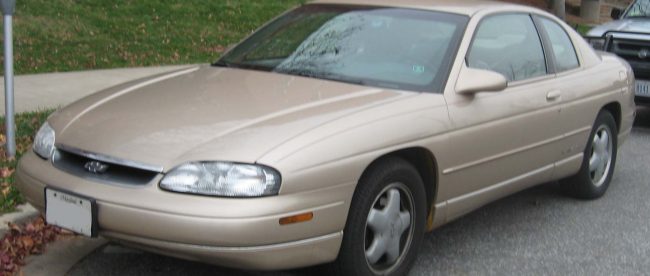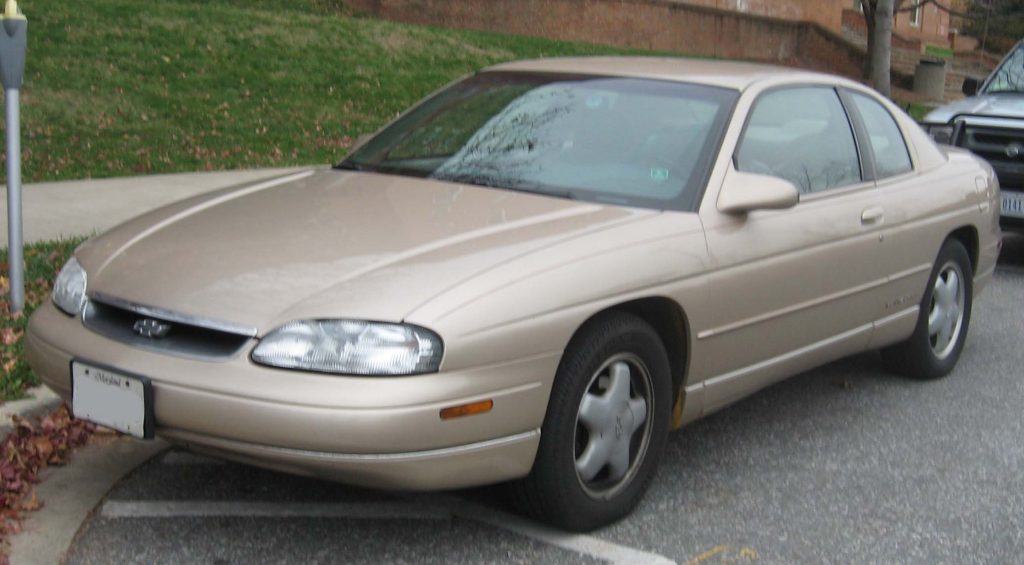How Overdue Parking Tickets Took Over an Innocent Person’s Life


In 2008, a Chicago-area man named Brandon Preveau bought a 1999 Chevy Monte Carlo — like the one pictured above — for about $600 to $800. That was a fair price for the car, and it seemed that Preveau’s purchase was on the up-and-up — he paid the title transfer fees, obtained insurance for the vehicle, and registered it with the state. For a year or so, he’d drive it to work, like anyone else would. For Preveau, work was Chicago’s O’Hare airport — he was employed by United Airlines.
In November of 2009, Preveau drove the Monte Carlo to O’Hare for the last time. He parked it in a secure lot owned by the city and, for reasons not yet clear, walked away, never to touch the car again. And the city did what cities do when cars are parked illegally — they issued tickets. Lots of tickets. At first, the tickets were just for having parked illegally, but as time passed and the car fell into disrepair, it earned even more citations. As the New York Daily News reported, “the offenses included broken headlights, being in a hazardous and dilapidated condition and having missing or cracked windows.”
But Preveau never received notice of these violations — because as far as the state was concerned, the car wasn’t his.
For some reason, when Preveau bought the car, he registered it under the name of his then-girlfriend, a woman named Jennifer Fitzgerald, and did so without telling her. Sometime between when Preveau purchased the car and when he abandoned it, though, the two broke up. The tickets were going to the person the state believed was responsible for the car: Fitzgerald. Preveau’s ploy, apparently, was to get revenge on his ex-girlfriend via the Chicago government.
And it seemed to work. Within a few weeks after the car’s abandonment, the city contacted Fitzgerald by mail about the fines she was accumulating. Unfortunately, she didn’t have the means to pay, as she didn’t have keys to the vehicle nor access to the parking lot, she was unable to retrieve the car. She went to the police but they were of no apparent help. The problem should have solved itself, somewhat, after 30 days — at that point, the police are supposed to tow the vehicle to an impound lot. But the police failed to do so and the comedy of errors continued. The Monte Carlo sat there idly until April of 2012, all while Fitzgerald tried — and failed — to remove herself from responsibility she shouldn’t have had in the first place. In the interim three and a half years, the police wrote more than 650 tickets totaling a ridiculous $105,761.80.
Fitzgerald sued the city and her ex in hopes of getting relief from what, clearly, shouldn’t be her responsibility. At first, the judge threw out her lawsuit, finding that “Fitzgerald’s attorney hadn’t done all he could do to first fight the tickets with the city’s Administrative Hearings Department,” according to the Chicago Tribune. The court did, however, allowed Fitzgerland to re-file her claim once her lawyer had exhausted all administrative options. And ultimately, Fitzgerald’s case was heard by the courts.
Justice didn’t really prevail, though. Hoping to avoid further legal fees, Fitzgerald agreed to a settlement with the city — she agreed to pay a $4,470 out of the more $100,000 she “owed.” According to DNAInfo, she was unable to pay any money up front, so the court made Preveau — under heavy protest — pay $1,600 as a down payment on the fines. Fitzgerald, though, had to cover the rest, under a court-approved payment plan: she was on the hook for $78 a month for three years, despite the fact that the car was never truly hers.
Bonus fact: In most cases, only the police can give parking tickets. Not so in Houston, Texas. As the city’s website explains, Houston “holds volunteer trainings for citizens interested in getting involved in protecting their communities and helping fight disabled parking abuse.” After taking a four-hour course, volunteers are empowered to write tickets if they come across a vehicle illegally parked in a space reserved for those who need accessible parking.
From the Archives: Operator Unknown: The license plate that’s a magnet for tickets.
